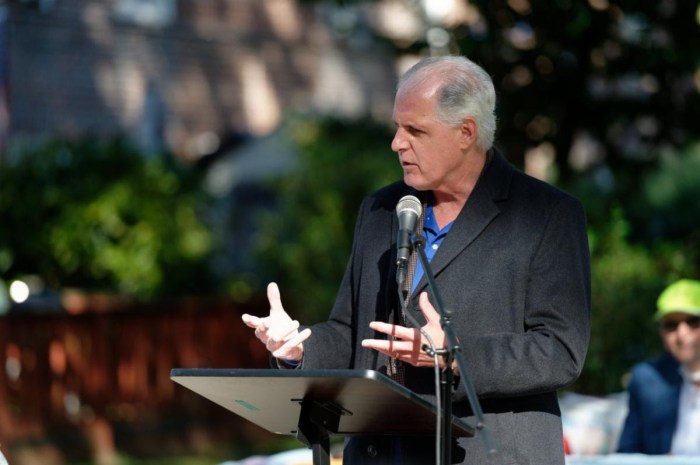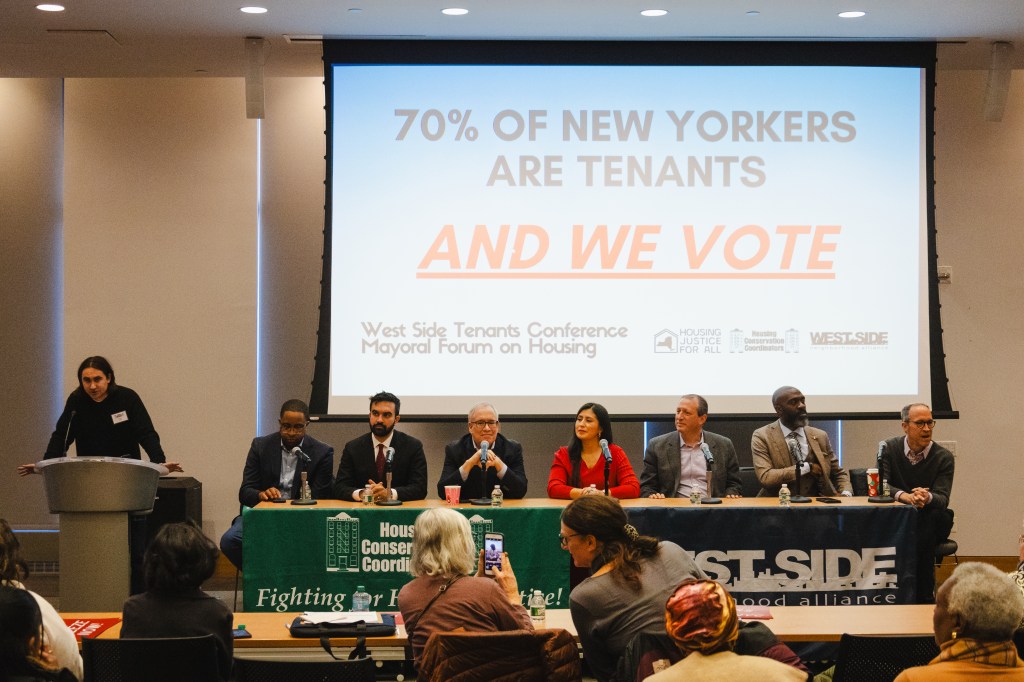By Alexander Dworkowitz
Standing in front of cardboard gravestones declaring the death of higher education, dozens of Queens College students last Thursday spoke out against tuition hikes and cuts in financial aid slated for public colleges across the state.
“When the economy is struggling, instead of increasing tuition, they should be lowering it,” said Rebecca Feder, the president of the student body, at an event organized by the New York Public Interest Research Group. “Public schools should not be hurt when the economy goes bad.”
In his preliminary budget proposal, Gov. George Pataki has called for a $1,200 increase at public colleges, making annual tuition $4,600 at State University of New York schools and $4,400 at City University of New York schools in an attempt to lower the state’s budget deficit.
The proposed increase comes in conjunction with a call for cuts in the state’s Tuition Assistance Program. In the 2001-2002 academic year, the state provided $675 million to TAP, and Pataki called for a reduction to $568 million.
The budget plan also lowers funding by 50 percent to what are called “opportunity programs,” packages of financial aid and academic counseling for lower-income students.
The chancellor of CUNY, Matthew Goldstein, has indicated he plans to increase tuition but not to the extent authorized by Pataki’s budget.
Pataki has defended the fiscal changes, saying students at city and state schools have not had a tuition hike since 1995.
“In spite of the unprecedented fiscal challenges that New York face, the governor’s budget still provides the resources we need to keep the SUNY and CUNY systems strong and accessible,” said Andrew Rush, a spokesman for the governor’s budget office.
Pataki proposed a similar cut in TAP last year, but the program was kept intact in the final budget.
The restructuring of TAP calls for a one-third reduction in individual grants. Students are expected to make up the money by taking out federal and state loans and would get the one third back if they graduate.
“If the student graduates, regardless of how long it takes to do that, they will enjoy every penny of the TAP program,” Rush said.
But the Queens College students contended that state and city schools were not as affordable as Pataki has made them out to be.
“We’re already the 15th most expensive state in the country for four-year schools,” said Asaf Klein, a Queens College student and activist with NYPIRG, after setting up a display of coffins and headstones on the Queens College quad with his fellow students.
Klein also said students at Queens College and other city and state schools were often hit with high fees.
Christian Gonzalez, a junior environmental geology major, wondered how he would afford his senior year if the planned changes occur.
Gonzalez, a resident of Middle Village, has a full-time job working for JetBlue and a full course load. Participating in many activist groups, Gonzalez said he may have to get a second job next year.
“I’m doing this because I want to get a better job, and I want to get a better life,” he said.
Gonzalez said he was not alone.
“You are going to see a lot of people drop out if there is an increase.”
The pleas of Queens College students found a sympathetic ear with some of their professors.
“It’s a selective tax for the people who can least afford it,” said Harvey Burstein, a philosophy professor. “It’s a dishonest act of the governor.”
Reach reporter Alexander Dworkowitz by e-mail at Timesledger@aol.com or call 718 229-0300, Ext. 141.

































